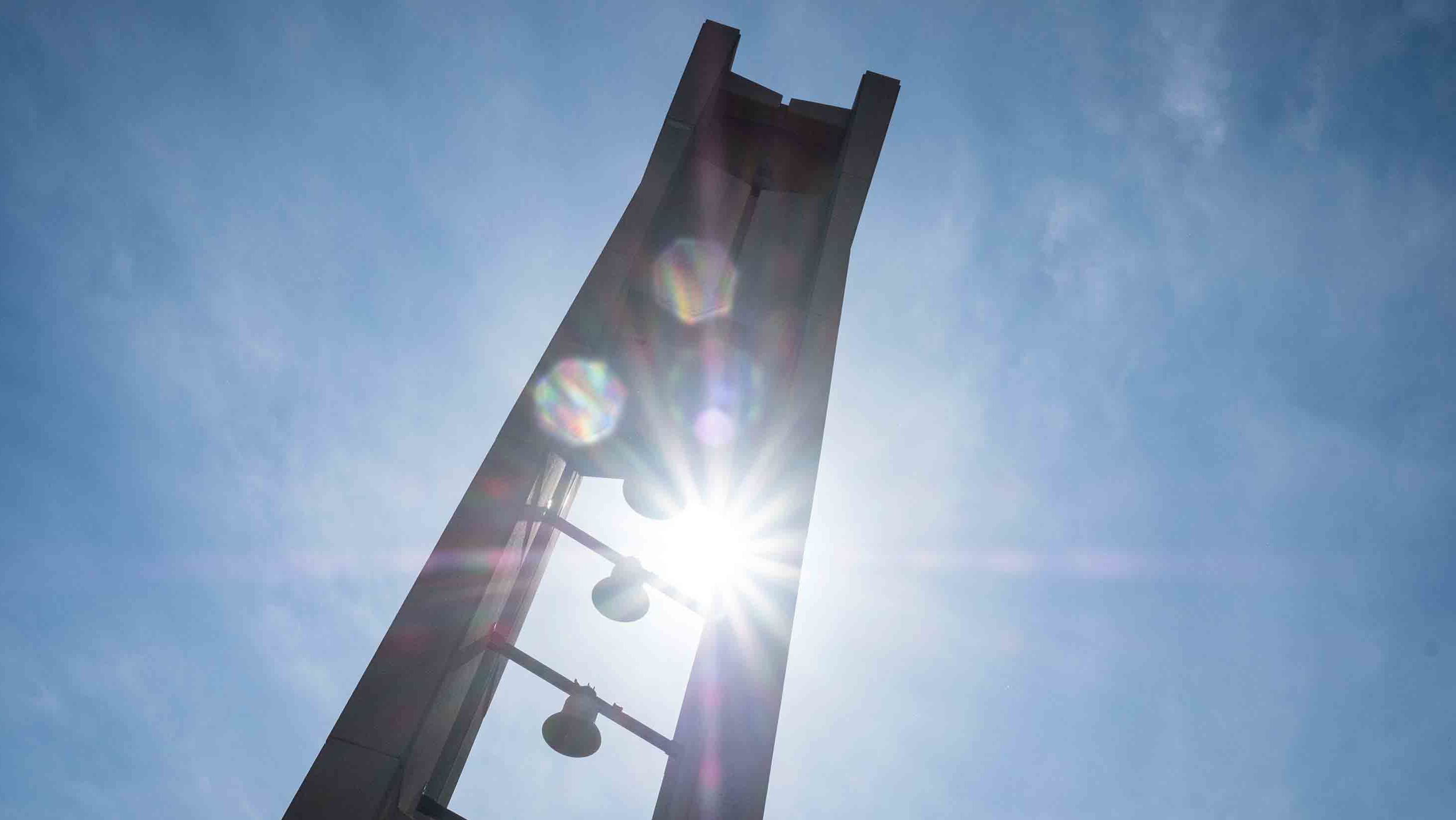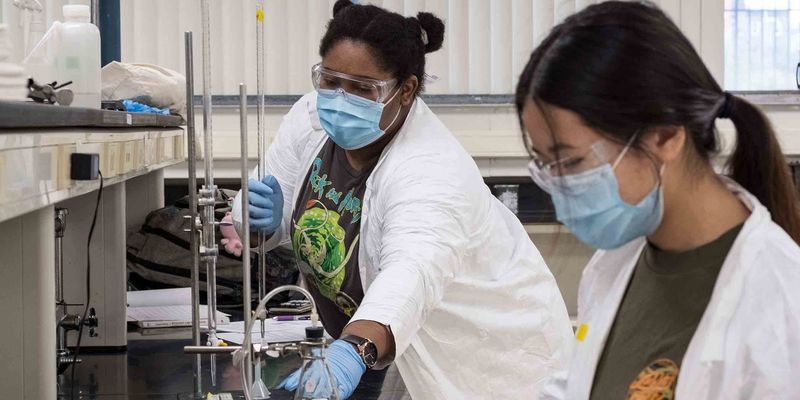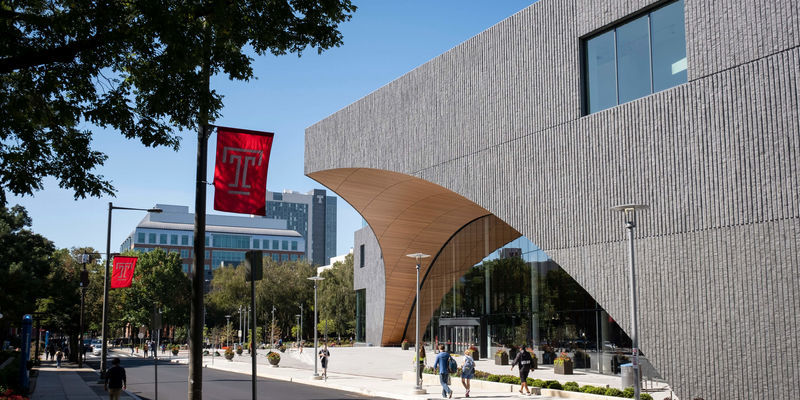Return to campus guide for employees
What you need to know for a safe return to campus.

When in-person, on-campus operations resume at Temple, it’s important that you and all of our dedicated employees have the information needed to feel comfortable returning to campus and understand the steps you need to take to protect the health and safety of our students, your fellow employees and the broader community.
To curb the risks of spreading COVID-19 and to maximize everyone’s safety, the university is putting a strong emphasis on infection prevention, tracking and containment measures, and other public health solutions.
It is critical that all members of the Temple community join together to ensure the success of our efforts to return to on-campus operations. We’re in this together so we can be together.
Here is what you need to know.
1. The entire campus community must embrace four public health pillars and we’re depending on our employees to model these behaviors.
The university’s return to in-person operations depends on each person on campus embracing four important public health measures to ensure everyone’s health and safety. It will take a collective effort to inform, support and enforce these expectations among the Temple community.
Face coverings
Everyone is required to wear face coverings indoors, and their use is recommended when outdoors, along with physical distancing measures. If you have a private office, you don’t have to wear covering while you’re in that space alone. You may use your own face covering when you return to campus, but departments will make washable, reusable face coverings available to all employees. Face shields are also acceptable for faculty members while teaching and for anyone with a health condition or disability in which a mask is able to be worn.
Cloth, reusable facial coverings, whether they are handmade or manufactured are sufficient. Coverings with a vent, handkerchiefs and gaiters are not considered acceptable. Read more about Temple’s facial covering guidelines.
Physical distancing
Keep a minimum of six feet apart, or two arms’ lengths, from others at all times to minimize the chance of breathing droplets from an infected individual. Work spaces and classrooms are being evaluated and reconfigured to account for more space between people. Physical distancing is especially important during meal and break times.
Hand hygiene
Wash hands at least hourly (if you are working with members of the public) with soap and warm water for at least 20 to 30 seconds. Use hand sanitizer with at least 60 percent alcohol content between hand washings as needed. Hand sanitizer dispensers will be available throughout campus.
Health monitoring
Check your temperature before reporting to work each day and keep track of symptoms you may be experiencing. If you have a temperature of 100.4 or greater, or are experiencing symptoms of COVID-19, please report this to your supervisor, do not report to work and call Employee Health Services at 215-204-2679.
Managers should also notify Employee Health Services if one of their employees reports a temperature or symptoms.
2. Buildings and classrooms are being prepared to enhance health and safety.
Temple’s Offices of Facilities Management and Environmental Health and Radiation Safety are leading the effort on campus to evaluate work spaces, classrooms and common areas and implement appropriate health and safety measures.
Changes you’ll notice on campus include:
- the use of products approved by the Centers for Disease Control and Prevention (CDC) and Environmental Protection Agency for enhanced daily cleaning and disinfecting of common areas and classroom spaces;
- the installation of touchless hand sanitizer dispensers in lobbies, hallways and other common areas across campus;
- the installation of plexiglass physical distancing barriers shields in direct customer service areas and security desks;
- the installation of floor decals and markings in high-traffic areas to direct foot traffic and encourage physical distancing;
- the installation of signage to remind everyone on campus of the need to comply with the four public health pillars;
- the installation of touchless features on faucets in common restrooms; and
- enhancements to building ventilation, through upgraded HVAC filters for the best possible internal air quality.
Anyone using a common space—including classrooms, offices, labs or meeting rooms—is required to maintain a six-foot distance and wear a face covering. Physical distancing best practices will be used to offer guidance on how many people are able to be in a common space at the same time. It’s important for you to know and understand these expectations so you can play an active role in safeguarding your health and the health of the campus community.
Read more about what’s being implemented regarding building safety and what the plans are for increased cleaning and disinfecting across campus.
3. Temple will implement a phased return of employees in a coordinated process as permitted by federal, state and local regulations.
Once all appropriate health and safety measures have been implemented—including, for example, the posting of signs, the installation of plexiglass shields and floor decals—students, faculty and staff will be permitted to begin to return to campus in phases.
Managers and supervisors will make decisions about who will return during each phase. As staffing increases, the university will closely monitor and assess the health and safety measures that have been put in place and reevaluate and revise them as necessary.
Minimizing the number of individuals who share the same space is a key component of our campus safety plan, so employees who are able to perform their jobs effectively from a remote location may be allowed to continue to do so.
In addition, some employees may find that in order to maintain safety and physical distancing guidelines, they may be asked to adjust their schedules or change their routines in some way. During this time, managers and staff should remain flexible while working out the best options for protecting the entire university community.
4. The university understands that some employees may have health conditions or personal needs that require consideration.
We recognize that COVID-19 has raised new concerns for some of you that include both health and personal matters. If you have an underlying health condition or meet other high-risk criteria that makes you vulnerable and wish to seek reasonable accommodations related to returning to the workplace, you should notify your manager, your department head, or your Human Resources representative who will work with you to find a solution.
5. Safety protocols have been established for employees experiencing symptoms of COVID-19.
Guidelines have been carefully considered for what employees and managers should do in the event that a Temple faculty or staff member experiences symptoms of COVID-19.
Symptoms include dry cough; headache; sore throat; congestion or runny nose; muscle or body aches; new loss of taste or smell; nausea or vomiting, or diarrhea; chills; out-of-the-ordinary fatigue; and/or shortness of breath or difficulty breathing.
If you experience any of these symptoms while away from work, do not report to work. Let your supervisor know and contact Employee Health Services in order to begin contact tracing, if needed. If you’re at work and begin to feel ill, please report this to your supervisor and contact Employee Health Services immediately.
Employee Health Services will ensure you are treated, screened and tested appropriately and will give you information about additional measures you may need to take. Employee Health Services will also notify individuals who have been in close contact with anyone on campus who has tested positive for COVID-19 and provide them with the information they need to protect their health and the health of those around them.
In the event that an employee tests positive for COVID-19, managers can help by contacting Employee Health Services and assisting with the identification of other employees who may have been in close contact with that individual. They should also arrange for the cleaning and disinfection of the work area prior to others returning to work in that space.
6. You will receive regular updates from the university regarding health and safety measures.
Maintaining our students’ education in an environment that is safe for everyone is our top priority. Because circumstances regarding COVID-19 are evolving, the university is continually assessing the situation and updating our plans. We are committed to keeping you up to date regarding the latest policies and procedures and the health and safety of our community.
You may also visit temple.edu/coronavirus and use the TUportal “Return to Campus” tab to stay informed. (You'll need your Temple login information to view documents on TUportal.)
For more detailed information on the phased return to campus, faculty and staff may consult the Return to Campus Guide for Temple Staff and Faculty.
Managers may consult the Return to Campus Guide for Temple Managers.


